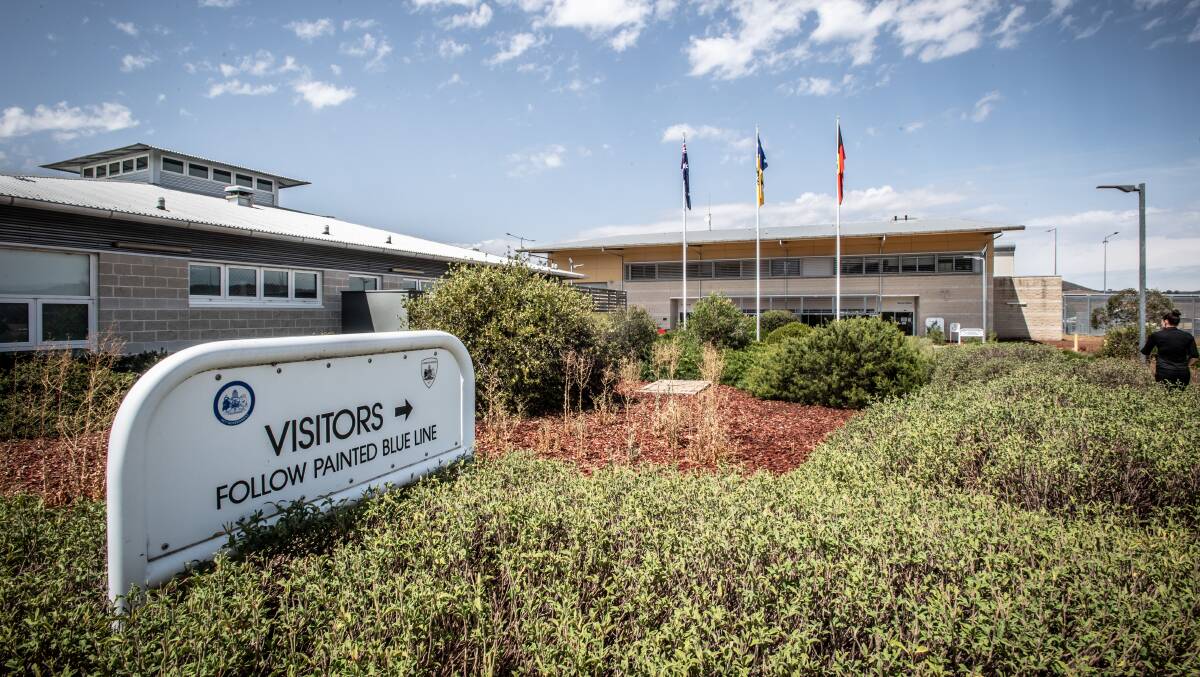
Prisoners in the ACT's jail with most mental health conditions do not receive adequate treatment due to a significant shortage of psychologists in the Alexander Maconochie Centre, a damning Auditor-General's report has concluded.
Delivery of mental health services to Aboriginal and Torres Strait Islander detainees is ineffective and there are opportunities for more input from Indigenous service providers at all stages of the prison's mental health care system, the audit found.
Aboriginal and Torres Strait Islander prisoners in the ACT are also not effectively screened for mental health issues when they are admitted to the territory's jail, due to a lack of involvement from an Aboriginal or Torres Strait Islander health officer.
The audit of mental health services at the Alexander Maconochie Centre found mental health services were effective for non-Indigenous detainees under psychiatric or suicide and self-harm ratings.
However, care was inadequate for detainees with less severe mental health conditions.
But support for Aboriginal and Torres Strait Islander detainees with psychiatric, suicide or self-harm risks would be improved with the input of an Indigenous service provider.
Auditor-General Michael Harris on Wednesday released the report into the provision of prison mental health services, which noted standards were set under the Corrections Management Act.
"Due to the ambiguous target, coupled with poor data-collection practices and a lack of performance information collected by the agency, the Audit Office was unable to establish whether this standard had been met," Mr Harris said in a statement.
The audit found there had been no strategic planning for the delivery of mental health services at the prison and planning was limited by poor data collection.
"Planning for the release of detainees with mental health conditions could also be improved by the development of guidance material that describes the process for this planning, and the information required to inform that planning," the report said.
The Auditor-General made 19 recommendations, including that Canberra Health Services should develop a clinical services plan for mental health services delivery in the prison, in conjunction with ACT Health.
Canberra Health Services should also improve its record keeping and reporting lines, as current arrangements "do not provide clear management linkages between Canberra Health Services and ACT Corrective Services".
Training for custodial officers to better support detainees with mental health conditions ought to be provided, the audit said.
Canberra Health Services should also prepare more information to cover release planning for detainees with mental health care plans.
MORE A.C.T. POLITICS NEWS:
- ACT's new planning act to be revealed imminently
- Commonwealth denied ACT calls to denounce 'extremist' protesters
- Officials declined sending $17.5 million school upgrade to corruption watchdog
The 117-page report noted there was a significant shortfall in the number of staff in the custodial mental health area, and its psychologists were in junior roles.
"While funded for a total of 16 [full-time equivalent] staff, ranging from registered nurses to forensic psychologists, the team only has 11.2 current [full-time equivalent staff]," the report said.
"The most significant shortfall in staff occurs in the number of psychologists; only two of the four budgeted positions have been filled as of April 2021. The two psychology positions that have been filled are the most junior roles."
The report also called for greater oversight of the services delivered by Winnunga Nimmityjah Aboriginal Health and Community Services, and a requirement for the service to be consulted to develop release plans for Aboriginal and Torres Strait Islander detainees.
"While occurring informally, there is no established process to ensure that advice and support is sought from Winnunga, or any other Aboriginal or Torres Strait Islander health professional, for Aboriginal and Torres Strait Islander detainees at risk of suicide and self-harm," the report said.
- Support is available for those who may be distressed by phoning Lifeline 13 11 14; Mensline 1300 789 978; Kids Helpline 1800 551 800; beyondblue 1300 224 636; 1800-RESPECT 1800 737 732.







